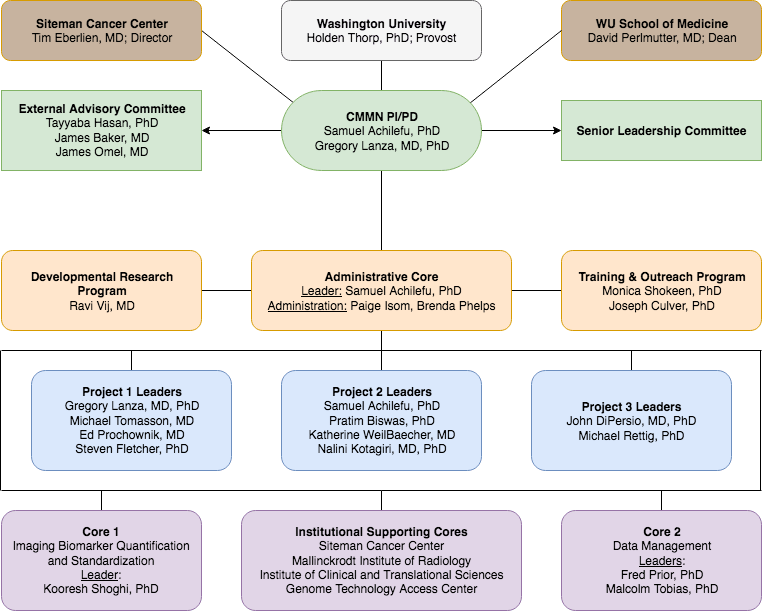
The Washington University Center for Multiple Myeloma Nanotherapy (CMMN) is a federally-funded program that was developed to improve the treatment outcomes of people with multiple myeloma.
Multiple myeloma is a blood cancer affecting the plasma cells of the bone marrow. The bone marrow is the spongy center of the bone, which is the source of blood cells that carry hemoglobin and cells of the immune system. Although most patients with multiple myeloma respond to treatment initially, virtually all relapse and die from the disease.
The local center focuses on nanotherapy. “Nano” refers to the use of devices on a very small or molecular scale. The CMMN investigators aim to develop nano-sized materials and drug-delivering methods to battle multiple myeloma.
The CMMN is also a Center of Cancer Nanotechnology Excellence (CCNE), a distinction given by the National Cancer Institute (NCI), which is part of the National Institutes of Health. The CCNE is an alliance of select medical centers across the nation charged with developing nanotechnology-based methods to diagnose and treat cancer. Current methods to treat cancer include surgery, chemotherapy and radiation therapy.

Nanotherapy effective in mice with multiple myeloma

Researchers at Washington University School of Medicine in St. Louis have developed a nanotherapy that is effective in treating mice with multiple myeloma, a cancer of bone marrow immune cells.